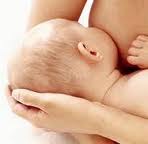It has been known for some time that breast milk plays a preventative role in infants. It transmits antibodies and protects from viral illnesses, but it also prevents the infant from developing asthma. Dr. Anne L. Wright, from the University of Arizona in Tucson, and colleagues published a study of 243 infants/mothers in the October issue of the Journal of Allergy and Clinical Immunology (J Allergy Clin Immunol 2003;112:723-728).
They measured cytokines and growth factors in breast milk and examined the infants paying particular attention to wheezing as a symptom of asthma. One of the cytokines, called transforming growth factor (TGF)-beta1, was inversely related to the amount of wheezing in the infants. In other words, the higher the level of this growth factor was in breast milk, the more protected from asthma the infant was. This was a highly significant correlation. After 3 months of being fed with breast milk with the highest level of TGF-beta1 the infants’ asthma rate was reduced by 78% compared to the rate of asthma found in infants fed only short-term with low level TGF-beta1 breast milk.
In their future research the investigators intend to investigate the effects of these breast milk cytokines on the cells, which form the lining of the airways, the immune system and the cells lining the gut in infants. There is already preliminary data to suggest cytokines play an important role in stabilizing these cells.
Here is a link to a chapter on asthma from the Net Health Book.
Last edited October 26, 2014






